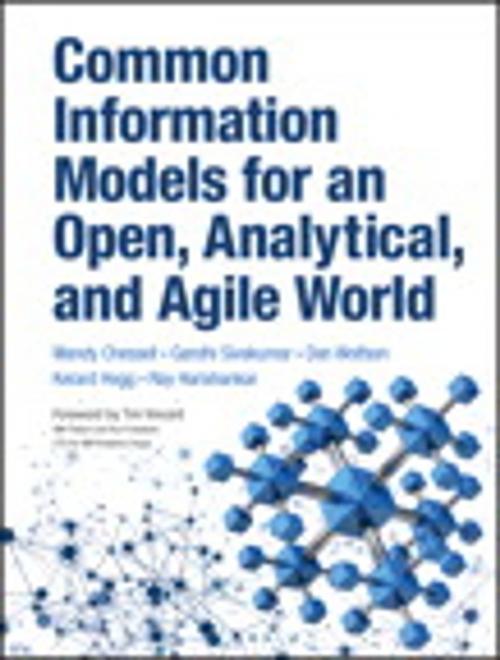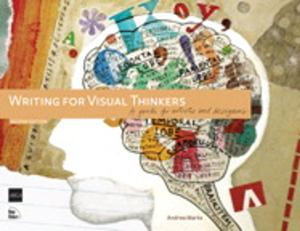Common Information Models for an Open, Analytical, and Agile World
Nonfiction, Computers, Programming, Software Development, Internet| Author: | Mandy Chessell, Gandhi Sivakumar, Dan Wolfson, Kerard Hogg, Ray Harishankar | ISBN: | 9780133366334 |
| Publisher: | Pearson Education | Publication: | April 8, 2015 |
| Imprint: | IBM Press | Language: | English |
| Author: | Mandy Chessell, Gandhi Sivakumar, Dan Wolfson, Kerard Hogg, Ray Harishankar |
| ISBN: | 9780133366334 |
| Publisher: | Pearson Education |
| Publication: | April 8, 2015 |
| Imprint: | IBM Press |
| Language: | English |
Maximize the Value of Your Information Throughout Even the Most Complex IT Project
Foreword by Tim Vincent, IBM Fellow and Vice President, CTO for IBM Analytics Group
To drive maximum value from complex IT projects, IT professionals need a deep understanding of the information their projects will use. Too often, however, IT treats information as an afterthought: the “poor stepchild” behind applications and infrastructure. That needs to change. This book will help you change it.
Five senior IBM architects show you how to use information-centric views to give data a central role in project design and delivery. Using Common Information Models (CIM), you learn how to standardize the way you represent information, making it easier to design, deploy, and evolve even the most complex systems.
Using a complete case study, the authors explain what CIMs are, how to build them, and how to maintain them. You learn how to clarify the structure, meaning, and intent of any information you may exchange, and then use your CIM to improve integration, collaboration, and agility.
In today’s mobile, cloud, and analytics environments, your information is more valuable than ever. To build systems that make the most of it, start right here.
Coverage Includes
• Mastering best practices for building and maintaining a CIM
• Understanding CIM components and artifacts: scope, perspectives, and depth of detail
• Choosing the right patterns for structuring your CIM
• Integrating a CIM into broader governance
• Using tools to manage your CIM more effectively
• Recognizing the importance of non-functional characteristics, such as availability, performance, and security, in system design
• Growing CIM value by expanding their scope and usage
• Previewing the future of CIMs
Foreword by Tim Vincent, IBM Fellow and Vice President, CTO for IBM Analytics Group
To drive maximum value from complex IT projects, IT professionals need a deep understanding of the information their projects will use. Too often, however, IT treats information as an afterthought: the “poor stepchild” behind applications and infrastructure. That needs to change. This book will help you change it.
Five senior IBM architects show you how to use information-centric views to give data a central role in project design and delivery. Using Common Information Models (CIM), you learn how to standardize the way you represent information, making it easier to design, deploy, and evolve even the most complex systems.
Using a complete case study, the authors explain what CIMs are, how to build them, and how to maintain them. You learn how to clarify the structure, meaning, and intent of any information you may exchange, and then use your CIM to improve integration, collaboration, and agility.
In today’s mobile, cloud, and analytics environments, your information is more valuable than ever. To build systems that make the most of it, start right here.
Coverage Includes
• Mastering best practices for building and maintaining a CIM
• Understanding CIM components and artifacts: scope, perspectives, and depth of detail
• Choosing the right patterns for structuring your CIM
• Integrating a CIM into broader governance
• Using tools to manage your CIM more effectively
• Recognizing the importance of non-functional characteristics, such as availability, performance, and security, in system design
• Growing CIM value by expanding their scope and usage
• Previewing the future of CIMs
Maximize the Value of Your Information Throughout Even the Most Complex IT Project
Foreword by Tim Vincent, IBM Fellow and Vice President, CTO for IBM Analytics Group
To drive maximum value from complex IT projects, IT professionals need a deep understanding of the information their projects will use. Too often, however, IT treats information as an afterthought: the “poor stepchild” behind applications and infrastructure. That needs to change. This book will help you change it.
Five senior IBM architects show you how to use information-centric views to give data a central role in project design and delivery. Using Common Information Models (CIM), you learn how to standardize the way you represent information, making it easier to design, deploy, and evolve even the most complex systems.
Using a complete case study, the authors explain what CIMs are, how to build them, and how to maintain them. You learn how to clarify the structure, meaning, and intent of any information you may exchange, and then use your CIM to improve integration, collaboration, and agility.
In today’s mobile, cloud, and analytics environments, your information is more valuable than ever. To build systems that make the most of it, start right here.
Coverage Includes
• Mastering best practices for building and maintaining a CIM
• Understanding CIM components and artifacts: scope, perspectives, and depth of detail
• Choosing the right patterns for structuring your CIM
• Integrating a CIM into broader governance
• Using tools to manage your CIM more effectively
• Recognizing the importance of non-functional characteristics, such as availability, performance, and security, in system design
• Growing CIM value by expanding their scope and usage
• Previewing the future of CIMs
Foreword by Tim Vincent, IBM Fellow and Vice President, CTO for IBM Analytics Group
To drive maximum value from complex IT projects, IT professionals need a deep understanding of the information their projects will use. Too often, however, IT treats information as an afterthought: the “poor stepchild” behind applications and infrastructure. That needs to change. This book will help you change it.
Five senior IBM architects show you how to use information-centric views to give data a central role in project design and delivery. Using Common Information Models (CIM), you learn how to standardize the way you represent information, making it easier to design, deploy, and evolve even the most complex systems.
Using a complete case study, the authors explain what CIMs are, how to build them, and how to maintain them. You learn how to clarify the structure, meaning, and intent of any information you may exchange, and then use your CIM to improve integration, collaboration, and agility.
In today’s mobile, cloud, and analytics environments, your information is more valuable than ever. To build systems that make the most of it, start right here.
Coverage Includes
• Mastering best practices for building and maintaining a CIM
• Understanding CIM components and artifacts: scope, perspectives, and depth of detail
• Choosing the right patterns for structuring your CIM
• Integrating a CIM into broader governance
• Using tools to manage your CIM more effectively
• Recognizing the importance of non-functional characteristics, such as availability, performance, and security, in system design
• Growing CIM value by expanding their scope and usage
• Previewing the future of CIMs















